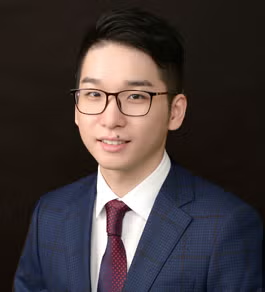Upcoming Event: Seminar
Zhe Wu, Assistant Professor, University of Singapore
1 – 2PM
Friday Nov 7, 2025
POB 6.304
Machine learning is opening new opportunities in advanced process control for chemical systems. Model predictive control (MPC), the gold standard in industrial practice, typically relies on linear empirical models to compute optimal control actions under process and actuator constraints. However, the inherent nonlinearity of chemical processes often requires nonlinear models for efficient control. While first-principles modeling can capture these nonlinearities, it is challenging to implement for complex or poorly understood systems. Machine learning methods, such as neural networks, offer an efficient data-driven alternative for building nonlinear dynamic models, improving MPC performance in such settings.
In this talk, we will present our research work on the use of ML tools in model predictive control of nonlinear dynamics systems, along with new solutions to key theoretical and practical challenges in ML-based MPC. Specifically, we will present: a) a general framework of using recurrent neural networks (RNN) for modeling nonlinear systems within MPC, b) theoretical results on the generalization error of RNN models and closed-loop stability of RNN-MPC using statistical learning theory, and c) novel ML modeling methods including physics-informed ML and transfer learning to address practical challenges such as data scarcity in process modeling. Throughout the talk, we will present applications of our methods to chemical and pharmaceutical processes to demonstrate their effectiveness, and provide new insights to many emerging pratical challenges in implementing ML-based MPC.
Zhe Wu is an Assistant Professor in the Department of Chemical and Biomolecular Engineering at the National University of Singapore (NUS). He earned his B.S. in Control Science and Engineering from Zhejiang University (2016) and his Ph.D. in Chemical Engineering from UCLA (2020), followed by a postdoctoral position in UCLA’s Computer Science department. His research focuses on process systems engineering, including process modeling, optimization, control, and machine learning applications in chemical engineering. He has published over 50 peer-reviewed articles and secured more than SGD 2 million in research funding from Singapore funding agencies: ASTAR, NRF, MOE, and chemical and pharmaceutical companies. Dr. Wu serves on the editorial board of Digital Chemical Engineering and is on the Early Career Advisory Board of Control Engineering Practice. He has received the Outstanding Early Career Award from NUS (2024), the Outstanding Young Faculty Award from AIChE Singapore Local Section (2024), and was named to the Stanford/Elsevier Top 2% Scientists List (2024).
